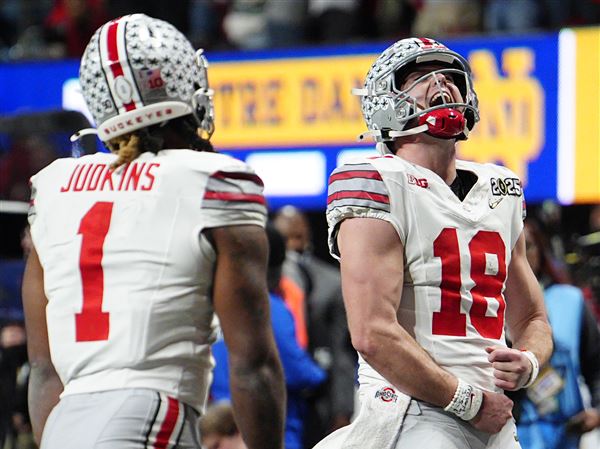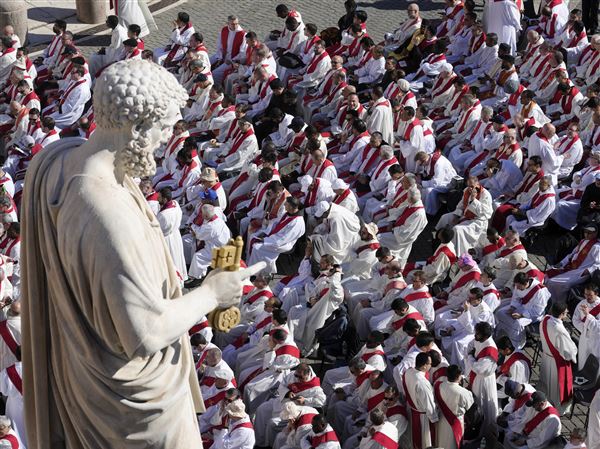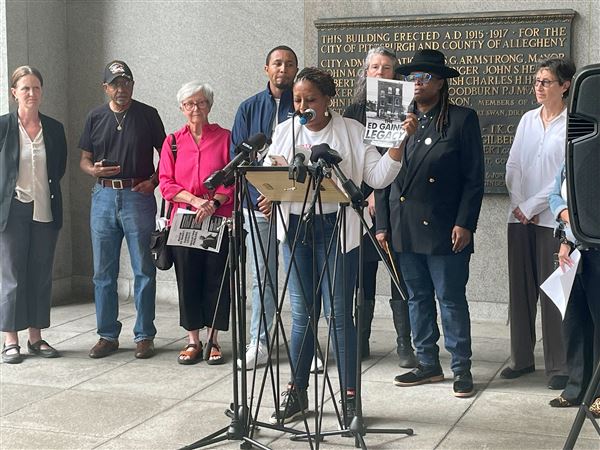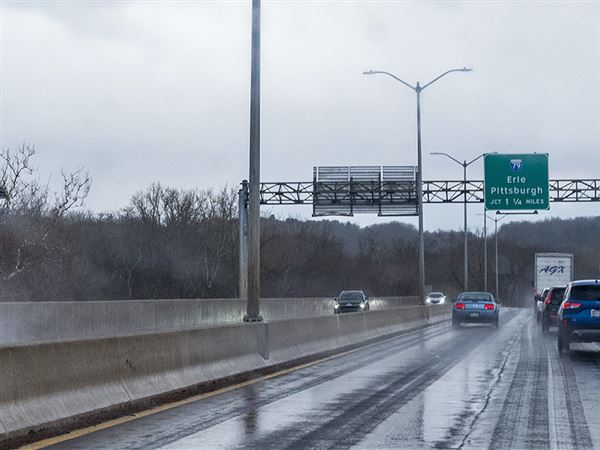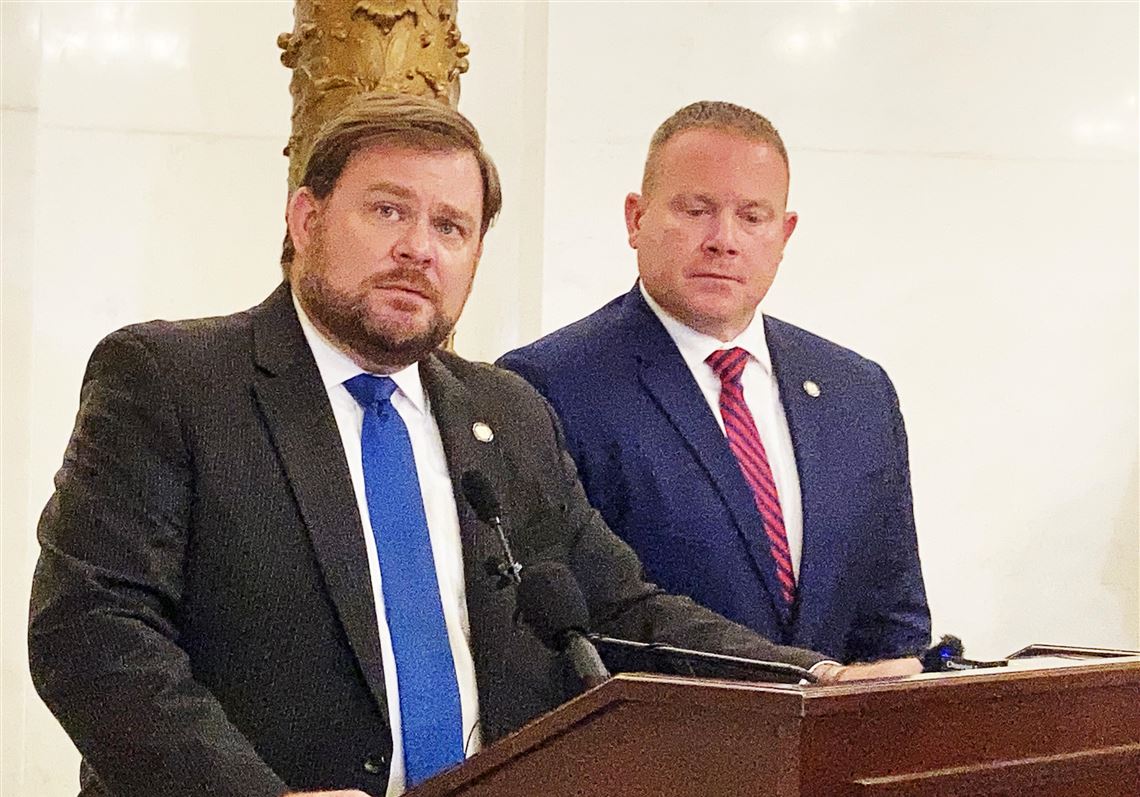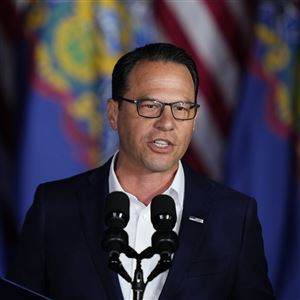HARRISBURG — After legislative Republicans publicly shunned one higher education proposal from Democratic Gov. Josh Shapiro that involved a merger, they have indicated that a second — changing how money for state-related universities like Pitt and Penn State gets approved — may also be dead in the water.
Mr. Shapiro’s second proposal would move the universities’ funding streams from “nonpreferred appropriation” status, where they need a two-thirds majority vote of lawmakers to pass, into the Education Department budget, where only a simple majority vote is required. The governor has said he wants to defuse the repeated political slugfests over funding, like one involving fetal tissue research at Pitt two years ago.
Influential Republicans are shaking their heads.
“There may be very significant hurdles constitutionally to make the change the governor is suggesting,” said Sen. Joe Pittman, R-Indiana and Senate Republican majority leader. Rep. Rob Mercuri, R-Allegheny and minority head of a subcommittee on higher education, said the concept sounds like “an easy fix” but would require legal gymnastics.
“I don’t know that that proposal is ready for prime time,” Mr. Mercuri said.
Specifically, the state constitution says a two-thirds vote is required to send money to any educational or charitable institution “not under the absolute control of the Commonwealth.”
The practical effect, voting-wise, is that the majority party needs some support from the minority party to pass the bills. Hence, the minority party can use the situation as leverage to extract votes on other items from the majority party.
Last year, lawmakers cast the final state-related universities votes on Nov. 15, more than four months after the state’s fiscal year had started. That bill included general support of $151.5 million for the University of Pittsburgh and a total of more than $400 million for the other three schools.
This year, Mr. Shapiro has proposed putting $633.7 million in “grants to state-related institutions” into the 2024-25 Education Department budget. The total represents a 5% increase.
One fellow Democrat, veteran Sen. Lisa Boscola of Northampton County, sees “value in the message” sent by requiring so many “yes” votes on a nonpreferred appropriation.
“The two-thirds is an affirmation that an overwhelming majority of the General Assembly supports these designated dollars,” Ms. Boscola said. “You really need the two-thirds vote.”
A spokesperson for House Democrats, Beth Rementer, said they believe the proposal is constitutional. “That said, we continue to review the governor’s budget plan as we develop budget-related bills,” she added.
Sen. Anthony Williams of Philadelphia, another Democrat, said the proposed change is needed.
In years past, he said, education funding debates were driven by input from educators, advocates and experts. Now, he said, they are driven by a political scorecard mindset that he described as “We don’t want them to get a win,” and that is a “dangerous” scenario for a state trying to improve education.
“You should take the politics out of it,” Mr. Williams said, by putting the state-related university funding streams into part of the budget with a simple-majority approval status.
Concerns about the state-related university funding proposal from Mr. Shapiro follow those raised earlier by Republican leadership about a proposal from the governor that would merge 10 State System of Higher Education universities and numerous community colleges — both groups dealing with enrollment declines — under a single, new organization.
The GOP leadership offered up some of its own ideas for addressing higher education issues in the state, including some financial enticement programs designed to lure post-secondary students into fields of study where employers in the state need workers.
The official deadline for approving a final state budget is June 30, although last year’s negotiations stretched into the summer and funding for some items — including community colleges — was not approved until December.
Yet another aspect of Mr. Shapiro’s higher education proposals this year has been welcomed by Republicans. In his budget address, the governor called for a “predictable, outcome-based funding system” for evaluating spending on state-related universities.
Mr. Shapiro said he wants more accountability. Among other things, he wants to monitor how many first-generation college students enroll, how many students stay in Pennsylvania after graduation, and how many go into fields needed in Pennsylvania like agriculture, education and nursing.
At a news conference earlier this month, Rep. Jesse Topper, R-Somerset and minority chairman of the House Education Committee, noted Mr. Shapiro’s focus on accountability. Mr. Topper said the important question was, “What are we seeing for the dollars that we lay out.”
Ford Turner: fturner@post-gazette.com
First Published: April 20, 2024, 9:30 a.m.
Updated: April 20, 2024, 5:44 p.m.
